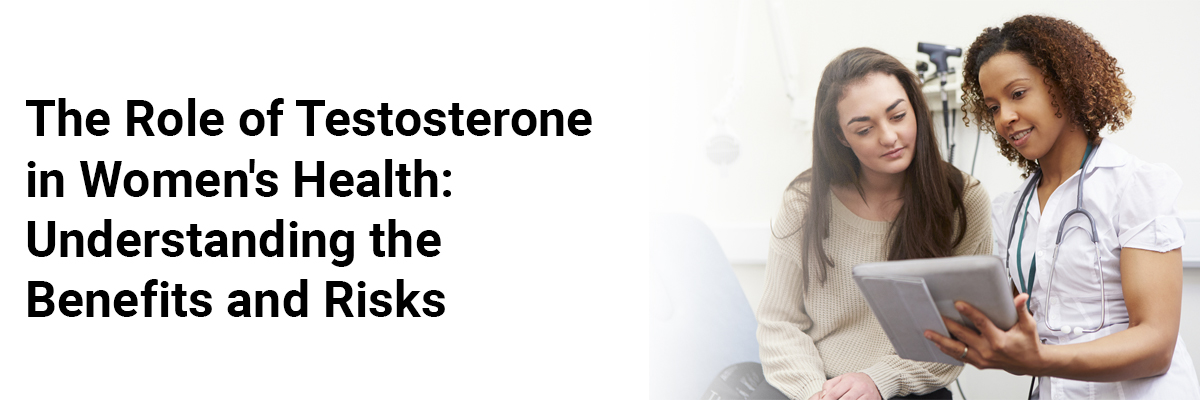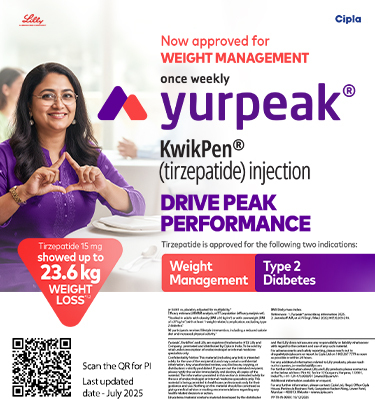
 Mrs. Mayuri Mathur
Mrs. Mayuri Mathur
The Role of Testosterone in Women's Health: Understanding the Benefits and Risks
Estrogens, the primary female sex hormones, play a vital role in the development of the female reproductive system and secondary sexual characteristics. Although not as much as men, women do produce androgen hormones in their ovaries and adrenal glands. Women require small amounts of testosterone to maintain proper mood, energy levels, sex drive, and bodily functions. Androgens play a crucial role in supporting female health, both physically and emotionally.
In women, the active androgens are dehydroepiandrosterone sulfate (DHEA-S), dehydroepiandrosterone (DHEA), androstenedione, testosterone, and dihydrotestosterone. As women age, their testosterone levels naturally decrease. Even after menopause, the ovaries continue to produce hormones, including testosterone, though in smaller amounts.
Impact of Testosterone on Women's Bodies
Normal levels of testosterone play various roles in maintaining women's overall health:
1. It influences Cardio-metabolic health.
Testosterone directly affects blood vessels by causing relaxation. Excessively high testosterone levels can lead to vasoconstriction and increased risk of cardiovascular disease.
Research suggests that low concentrations of total, accessible, and bioavailable testosterone are associated with a higher likelihood of developing atherosclerotic carotid disease, cardiovascular events, and overall mortality. When taken orally as a medication, testosterone can negatively impact lipid profile by increasing harmful LDL cholesterol and reducing beneficial HDL cholesterol and triglycerides.
2. It directly affects skin and hair.
A hormone called dihydrotestosterone strongly affects hair follicles. It causes the follicles to shrink and have a shorter growth phase, which leads to hair loss. On the other hand, androgen receptors on certain areas like the chin, cheeks, and upper lips can cause coarse hair or excessive hair growth, a condition known as hirsutism.
In polycystic ovarian syndrome, high ovary testosterone production can contribute to hirsutism. Acne is also more common with testosterone therapy because androgens stimulate the sebaceous glands in the skin to grow and produce an oily substance called sebum. This sebum provides a favorable environment for the growth of Cutibacterium acnes, a type of bacteria associated with acne.
3. It supports cognitive health.
Testosterone has neuroprotective effects in women. Higher testosterone levels in premenopausal women have been associated with better performance in mathematical and spatial-relations tasks. Testosterone may also play a role in reducing the accumulation of the harmful protein amyloid-beta in the brain and promoting nerve regeneration.
Androgen receptors, including those for testosterone, are present throughout the central nervous system, and their activity affects various functions such as libido, body temperature regulation, sleep, cognitive function, language skills, and visuospatial skills.
4. It contributes to bone health.
Maintaining the correct testosterone balance is crucial for bone formation, as adequate testosterone levels support the growth and strength of bones. Evidence suggests that testosterone supplementation may have benefits in terms of improved muscle mass and strength in women who have undergone a hysterectomy.
5. It affects Breast/Endometrial Tissue.
Experimental results have shown that testosterone has anti-proliferative effects and promotes cell death (apoptosis) in breast tissue. Research has shown that testosterone can hinder the growth of breast cancer cells by suppressing estrogen receptor alpha.
Women with polycystic ovary syndrome or transgender individuals taking high doses of androgens do not show an increased incidence of breast cancer.
6. It influences Sexual Health.
Testosterone drives desire, fantasies, and thoughts about sex in women. Additionally, it contributes to providing the energy required for sexual activity.
7. It influences Vaginal Health.
Vaginal atrophy is a common condition after menopause, leading to various uncomfortable symptoms. Studies have shown positive effects of vaginal testosterone on vaginal health in post-menopausal women, including increased vaginal thickness, improved lubrication, and reduced pain during sexual intercourse.
Too Low or Too High Testosterone Levels
Maintaining a balanced level of testosterone is crucial for women's health. Low testosterone levels can contribute to decreased sex drive, fatigue, and increased risk of bone loss. On the other hand, high testosterone levels, often associated with conditions like polycystic ovarian syndrome (PCOS), can lead to menstrual irregularities, infertility, excessive hair growth, and various health complications such as insulin resistance and heart disease. Seeking medical guidance and undergoing a women's health check-up is important if you have concerns about your testosterone levels. A healthcare professional can evaluate your symptoms, conduct female medical check-ups, and provide necessary guidance to ensure your overall health and well-being.
Testosterone Therapy
Testosterone therapy in women is approached cautiously and per the recommendations of the Endocrine Society. While it is not recommended for the general treatment of various conditions, evidence supports its short-term effectiveness and safety for post-menopausal women with Hypoactive sexual desire disorder (HSDD). The safety of long-term testosterone therapy and its use for other symptoms or conditions require further research.
Conclusion
In conclusion, testosterone plays a significant role in women's health, but its use as a therapy needs a cautious approach. While there is evidence supporting its effectiveness in treating specific conditions like HSDD, more research is necessary to understand its long-term effects and potential risks.

Mrs. Mayuri Mathur
Mrs. Mayuri Mathur is a Senior Medical Writer (Patient education and digital) and seasoned content creator with a rich tapestry of expertise spanning over ten years. With a diverse background in content creation, she brings a wealth of experience to the table, from crafting insightful medical articles to developing comprehensive patient education materials, dynamic press releases, and captivating brochures and website content. Throughout her illustrious career, she has demonstrated an exceptional knack for distilling complex medical concepts into easily understandable content, making her a trusted resource for both professionals and lay audiences alike. Her meticulous attention to detail and innate creativity have enabled her to deliver content that not only informs but also engages and inspires. Whether elucidating intricate medical procedures or crafting compelling marketing materials, her versatility and dedication shine through in every project she undertakes. Her passion for writing, coupled with her profound understanding, makes her an invaluable asset to any team or project. In a constantly evolving digital landscape, where effective communication is paramount, Mrs. Mayuri Mathur stands out as a beacon of excellence, consistently delivering top-notch content that resonates with audiences across diverse platforms.

.png)

.png)
.png)


.jpg)








.jpg)


Please login to comment on this article